The 2016 AD historical drama movie Silence was directed by Martin Scorsese, was written by he and Jay Cocks and is based on a 1966 AD novel by Shūsaku Endō. It stars Andrew Garfield as Sebastião Rodrigues, Adam Driver as Francisco Garupe, Liam Neeson as Father Cristóvão Ferreira, Tadanobu Asano as The Interpreter, Ciarán Hinds as Father Alessandro Valignano, et al.
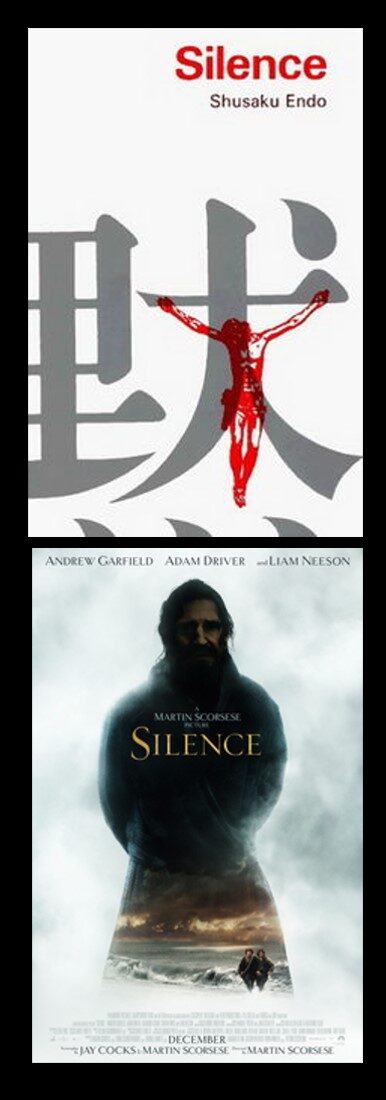
It is a beautiful, disturbing and thought provoking movie. Now, I cannot seem to penetrate the authorial intention but the whole movie turns out to be one gigantic contradiction. My wife read the novel and verifies that it does not resolve this thus, it is either due to the novel or the fact of reality which is the result of what happens when the truth encounters falsehood.
It is set in the 17th century AD and the premise is Portuguese Catholic missions to Japan. Following news (which took years to reach them) that Cristóvão Ferreira had apostatized, Sebastião Rodrigues and Francisco Garupe seek to verify the report.
CATHOLIC ELEMENT
The Catholic premise means theological disaster and shows how devastating to the gospel Catholicism can be. Japan is undergoing terrible persecution of Christians which leads to crypto-Christianity: Christians hiding their faith for fear of torture and death.
When the priests arrive in Japan the villagers are very blunt about the (Catholic) fact that now their sins can finally be forgiven. Why then? Well, because they can finally perform the rite of auricular confession (see Roman Catholic Confession Confusion). Generally speaking so called minor or lesser venial sins can be confessed straight to God but so called major or serious sins can only be forgiven if the sinner undergoes the rite of confession (and yes, just as with everything Catholicism has loopholes attached to their every doctrine).
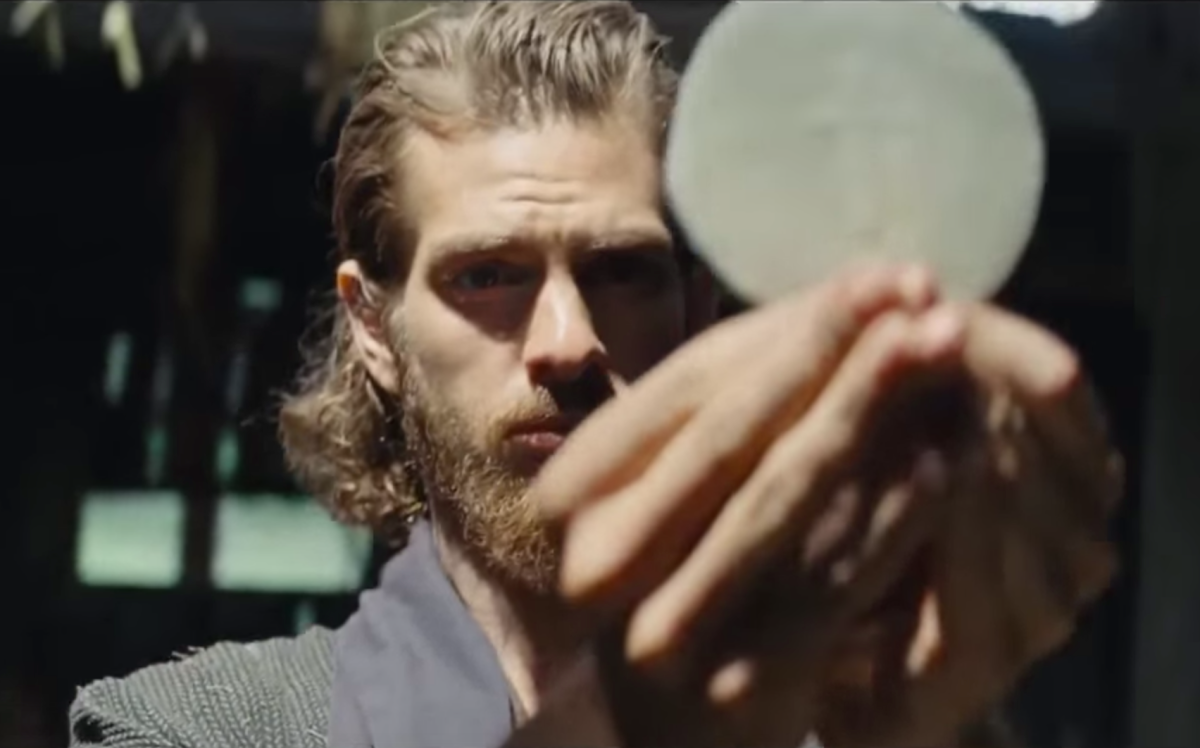
The villagers are also seen to be desperate for any tangible sign of faith such as a cross (even ones made by the priests out of straw). At one point, a priest takes his rosary apart so as to distribute the individual beads (see “The Fatima Crusader” : The Rosary and the Scapular and On the Queen of Heaven as the spirit over Catholicism and the Rosary). This is not emphasized in the movie but later on a Buddhist priest is seen with what? A stings of beads. Catholics, Buddhists, Muslims and Baha’i all employ such paraphernalia as they all practice the sorts of repetitive prayers which Jesus forbade (Matthew 6:7).
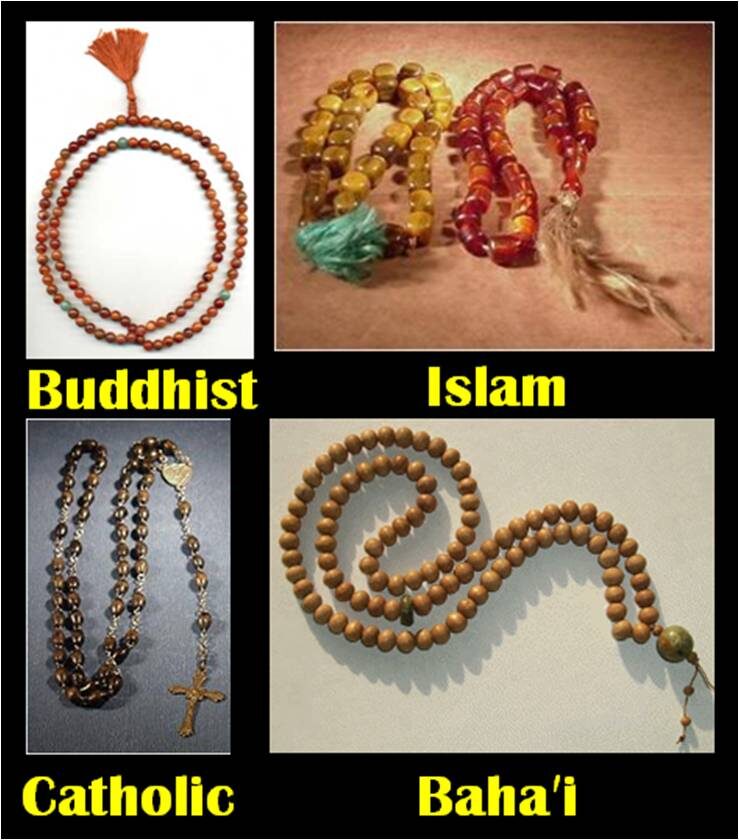
FOREIGN CHRISTIANIY
One of the movie’s contradictions is that a, if not the, reason the Japanese give for rejecting Christianity is that it is foreign to Japan. Yet, they affirm that Japan is Buddhist and guess what: Buddhism is utterly foreign to Japan as well as it came forth from India.
Thus, again, whether this is due to the novel, the movie or the actual history (nonsensical results of spiritual warfare) the fact is that this is a hypocritical contradiction.
BUDDHISM AND NATURE
Related to the above contradiction is that the Japanese Buddhists claim that based on their beliefs they do not believe, as does Christianity, that nature can be transcended.
Yet, there is a scene wherein a Buddhist Japanese official explicitly explains to a priest that they believe that they can become a Buddha. Thus, indeed, the very purpose of Buddhism is, in fact, to transcend nature.
BUDDHISM AND HUMAN NATURE Also related to this is the claim that Christianity is rejected because Buddhism does not hold that human nature can be changed. Well, I am not sure that Christianity would exactly claim that human nature can be changed but that human nature must be put to death so that the person is born again with a new nature.
Yet, be that as it may: this novel/movie/history claim is another hypocritical contradiction since the persecution changes in nature. The Japanese begins by mass murdering Christians but then realize that they are only producing martyrs which leads to more Christianity. Thus, they decide to have those accused of being Christians publically renounced Christianity—by stepping on an image of Jesus, more on this below—and so either have them affirm that they never were Christians or to get to them to do what: to change their human nature, to make Christians into non-Christians. You may argue that there is more to “human nature” than things such as a belief (even it that belief is a worldview) yet, contextually within the story’s framework this is that to which it refers.
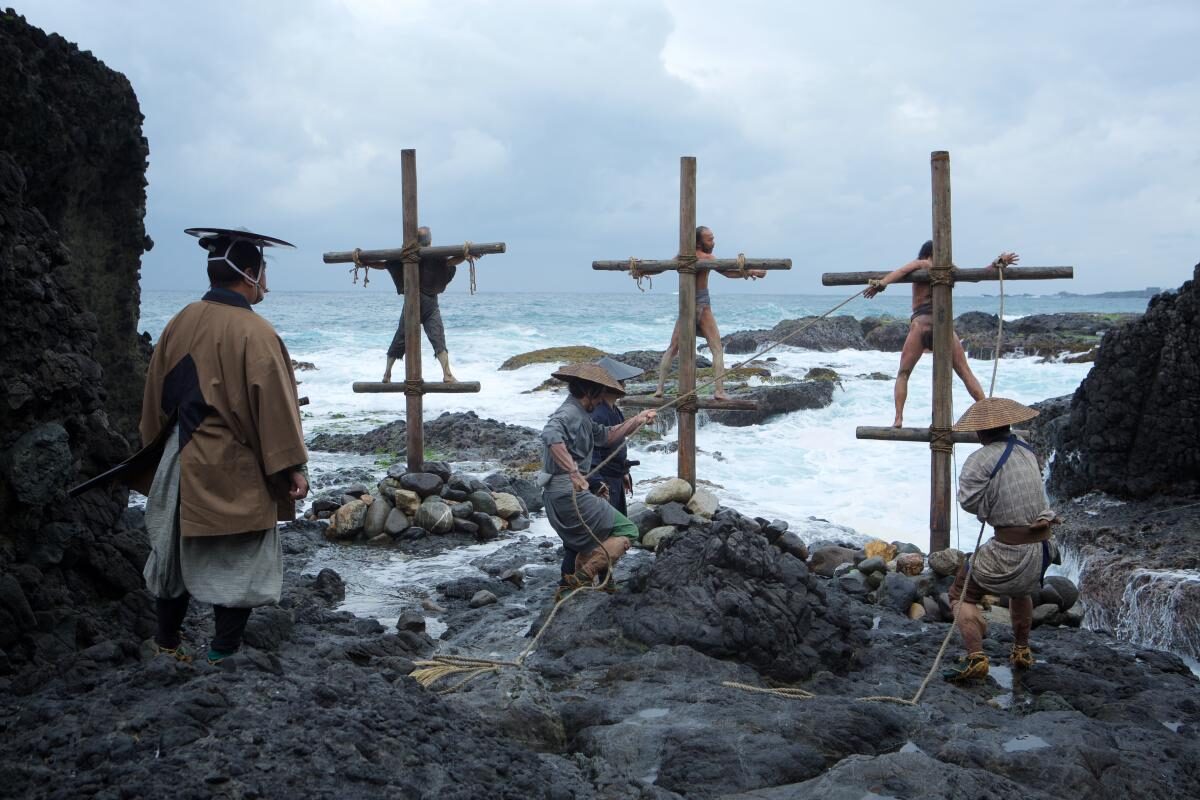
Execution of Japanese Christians
KICHIJIRO: PENT AND “RE”-PENT?
A character that I have a love/hate relationship with is Kichijiro. We meet him as a drunken Japanese man desperate to get back to Japan from China and who becomes the priest’s guide to entry into Japan undercover.
The Chinaman who introduces the priests to him claims that Kichijiro is a Christian but he denies it. As it turns, he is a Christian but has publically denied being one as per the Japanese test noted above. Throughout the movie he does this respectively and even seems to have turned in a hidden priest to the Japanese authorities for money.
Yet, he constantly seeks out the priest for confession. Thus, he repents time and time again (thus, seems to pent and re-pent which is just a word play on my part). In one scene it is not exactly elucidated but the priest implies that Kichijiro must not really understand what confession or absolution (I forget what term he uses) really means. Many wrongly think that the Catholic system officially teaches that you can sin and repent, sin and repent, sin and repent, etc. so that it is a style-fee pass. However, the point of the rite and the point that I inferred the priest was implying is that if Kichijiro was really repenting then he is supposed to stop committing the very same sin of which he is constantly repenting.
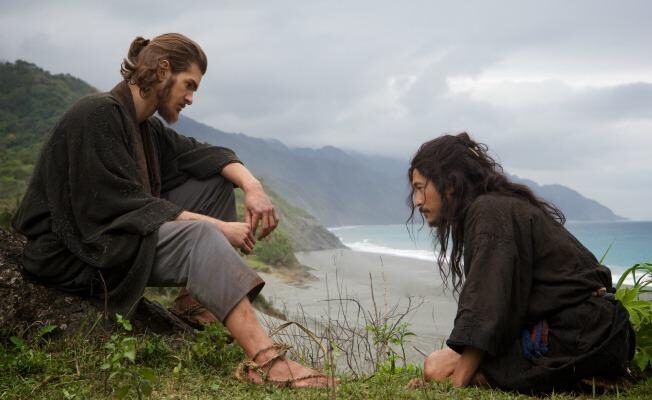
One of Kichijiro’s many repentences
DENY JESUS?
A thought provoking aspect of the movie is just what does it mean to “deny me before men” about which Jesus that if one does so then “I also deny before my Father which is in heaven” (Matthew 10:33).
This public denial take various forms within the movie. One way is that the Japanese carry around metal plates upon which is carved an image of Jesus and a person can simply step on it without making a statement. Or they are to step on it and make a statement of denial. Or they have to write out a statement of denial periodically for the rest of their lives, etc.
The issue is can one take these actions so as to preserve their lives and not be “really” renouncing Jesus? At times they are seen to do so because the Japanese threaten to murder others unless, for example, the priest take the action. This is actually a true issue with which Christians have had to deal from its earliest days up until this very day.
After all, stepping on a piece of metal is not stepping on Jesus. In fact, a priest perceives (in the movie it is an actual audible voice) that Jesus tells him to go ahead and step on “me” since this is the reason Jesus came to us: to be mocked, beaten, rejected, etc.
So, is this really rejecting Jesus? The movie makes this even more difficult by having a Japanese official assuring the accused that he really does not care about all of this business, that it is merely a formality, that they do not even have to mean it, etc.
EXTREME CRYPTO-CHRISTIANS Now, eventually a priest finds out that, indeed, Cristóvão Ferreira has not only personally apostatized but is famous amongst the Japanese for doing so.
Ferreira is also authoring a book for the Japanese about exactly how and why Christianity is not true. There is a scene wherein he explains to Sebastião Rodrigues why the Japanese reject Christianity and plays a bit of a Zeitgeist movie card by stating that according to Christianity Jesus, God’s Son rose on the third day but in Japan the Sun rises every day—FYI, such correlations only work in English: it is a bit more involved than this but this will suffice for the purposes of this article.
Eventually, Francisco Garupe dies and Rodrigues performs the act of stepping on the metal image. Just as Ferreira, he lives out his years under a Japanese name, with a Japanese wife and is a Buddhist. He is made to continually write out his affirmation of his rejection for Jesus for his remaining days.
Ferreira and Rodrigues are put in charge of inspecting objects being imported into Japan so as to identify any that may contain Christians symbolism—even a cross that looks like this + which may be a mere decoration. Such items are denied entry into Japan. Yet, as they do this Ferreira refers to “our Lord” and Rodrigues catches this, points out to him that he has, after all, referred to “our Lord” to which Ferreira said that sometimes he doubts.
The un-elucidated implication is that at least on some level he still believes in Jesus.
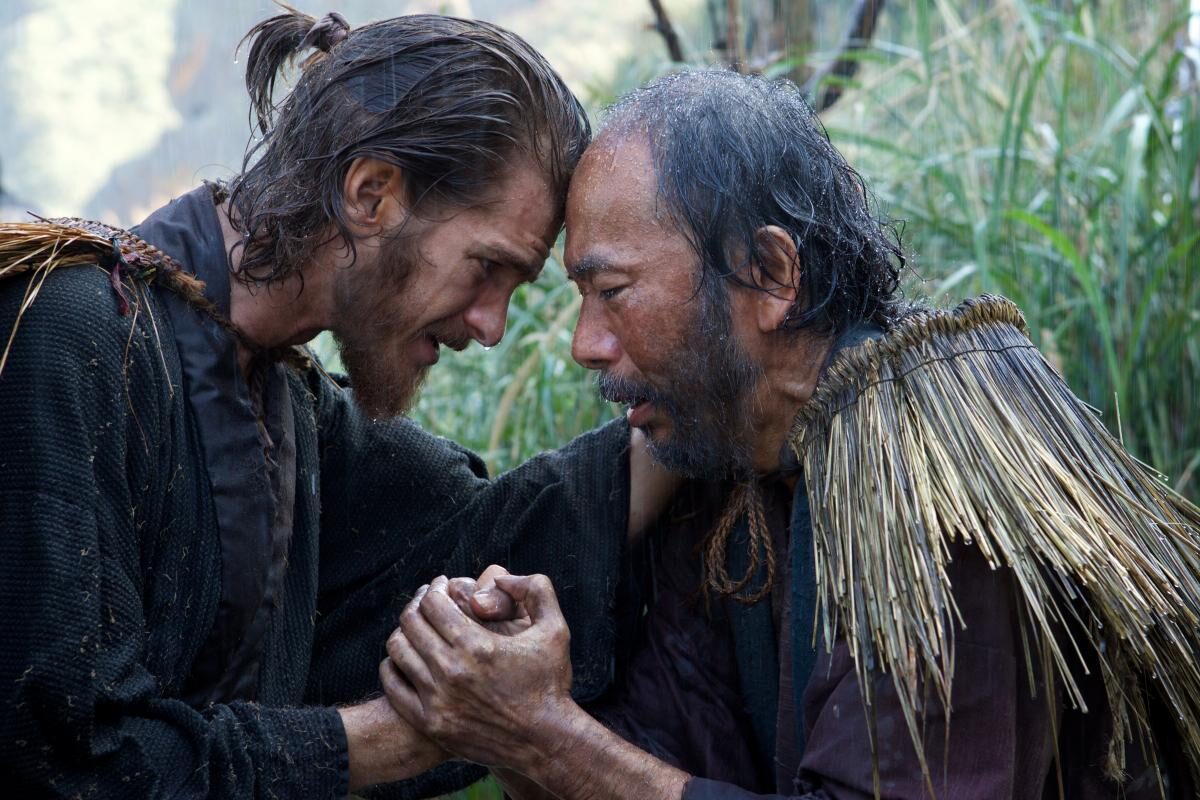
As the years pass we see that Kichijiro lives within proximity to Rodrigues and at one point approaches him for the rite of confession. Rodrigues flatly denies this since, for one, it could be entrapment (as I read it) and also because he is no longer a priest. Yet, he does end up performing the rite. The last we hear of Kichijiro is that he, along with Rodrigues, yet again perform the public stepping on the image of Jesus and yet, the official notices that he is wearing an icon of a “saint” under his robe and he is taken away.
Years later Rodrigues dies, his wife is allowed to approach his body during the Buddhist funeral and it turns out that she sneakily placed within his hands a small wooden crucifix that had been given to him by a villager in his early days in Japan (this scene is not in the novel). So, apparently, he either led his family to crypto-Christianity or at the very least his wife knew how important it was to him.
So, what is the authorial intention as well as that of Martin Scorsese and Jay Cocks?
It is that Japan and Buddhism win in the end?
If not, then the message seems to be that one can live as a Buddhist, consistently deny Jesus repeatedly for years, be an encouragement to a Pagan culture as to why they should continue rejecting Jesus including authoring a book to reinforce this and then, by golly, still be a Christian because in some secret corner of one’s heart, or something, there is still a little room for your own, personal Jesus (as Depeche Mode put it).
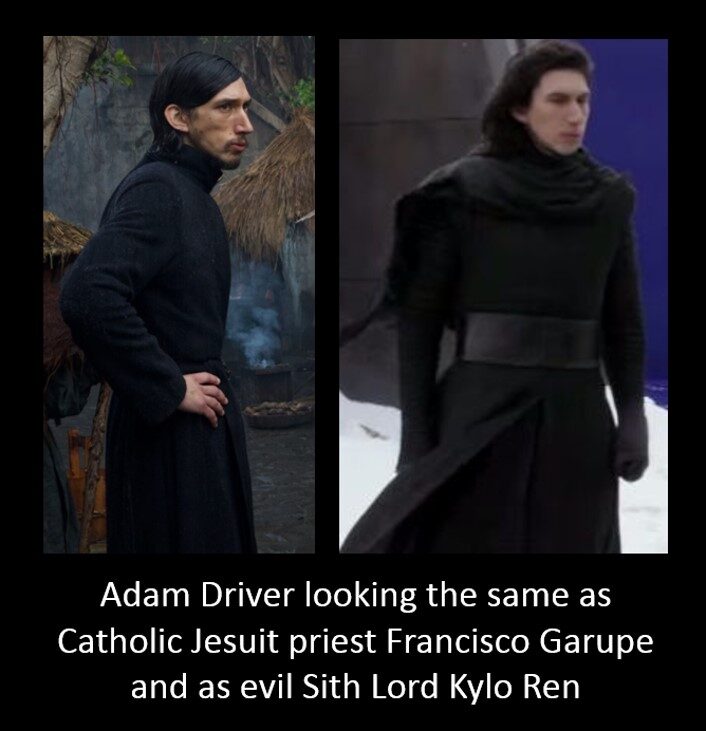
~~~~~~~~~~~~~~~~~~~~~~~~
A plea: I have to pay for server usage and have made all content on this website free and always will. I support my family on one income and do research, writing, videos, etc. as a hobby. If you can even spare $1.00 as a donation, please do so: it may not seem like much but if each person reading this would do so, even every now and then, it would add up and really, really help. Here is my donate/paypal page.
Due to robo-spaming, I had to close the comment sections. However, you can comment on my Facebook page and/or on my Google+ page. You can also use the “Share / Save” button below this post.
